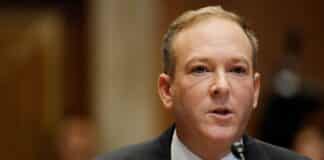The judge has repeatedly denied the IRS’ request for dismissal.
QUICK FACTS:
- U.S. Tax Court Judge David Gustafson previously denied a request from the Internal Revenue Service (IRS) to dismiss a whistleblower case against the Clinton Foundation and is now allowing the whistleblowers to present new arguments, further aggravating the IRS.
- Whistleblowers John Moynihan and Larry Doyle testified in 2018 that the Clinton Foundation accepted foreign donations in an attempt to influence U.S. policy.
- Moynihan, a former federal agent, said the Foundation “began acting as an agent of foreign governments early in its life and throughout its existence.”
- “As such, the foundation should’ve registered under FARA (Foreign Agents Registration Act). Ultimately, the foundation and its auditors conceded in formal submissions that it did operate as a (foreign) agent, therefore the foundation is not entitled to its 501c3 tax-exempt privileges as outlined in IRS 170 (c)2,” Moynihan stated before the House.
- Judge Gustafson denied an IRS motion for summary judgment in 2020, suggesting the IRS whistleblower office had evidence that had not been revealed in court.
- “There are facts and information, uniquely within the knowledge of the Whistleblower Office that need to be considered in connection with the resolution of the petitioner’s claim,” the judge wrote in 2021.
- Upon publication of the Durham Report, where details of investigations into the Clinton Foundation were divulged, Judge Gustafson is allowing both Moynihan and Doyle to add to their arguments against the Foundation.
- The arguments are to be completed by June 30 and the IRS has until July 28 to respond to the allegations.
DURHAM REPORT REFLECTS WHISTLEBLOWER TESTIMONY:
- The ‘Durham Report’ explained: “Beginning in late 2014, before Clinton formally declared her presidential candidacy, the FBI learned from a well-placed [source] that a foreign government was planning to send an individual to contribute to Clinton’s anticipated presidential campaign, as a way to gain influence with her should she win the presidency.”
- American Faith reported that an informant known as CHS-A told the FBI of attempts by a foreign government insider (referred to as “Insider-1”) to arrange a meeting with Clinton.
- The meeting was supposedly organized to discuss campaign contributions in exchange for the protection of the foreign government’s interests, should Clinton win the election.
- Durham’s report suggests that CHS-A had made a $2,700 campaign contribution on behalf of Insider-1, a foreign government individual, without the knowledge or prior approval of the handling agent.
- “Contrasted with the FBI’s rapid opening of Crossfire Hurricane,” Durham wrote, referring to the investigation into Trump’s relationship with Russia, “the FBI appears to have made no effort to investigate the possible illegal campaign contribution… or the Clinton campaign’s purported acceptance of a campaign contribution that was made by the FBI’s own long-term CHS on behalf of Insider-I and, ultimately, Foreign Government-3.”
BACKGROUND:
- A recent court ruling decided that IRS whistleblowers “may be granted limited discovery if they make a significant showing that there is material in the IRS’s possession indicative of bad faith on the IRS’s part in connection with the case or of an incomplete administrative record compiled by the IRS.”
- “A party must provide good reason to believe that discovery will uncover evidence relevant to the Court’s decision to look beyond the [designated] record,” the case notes, setting a precedent for whistleblower cases.






